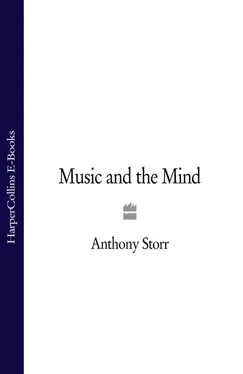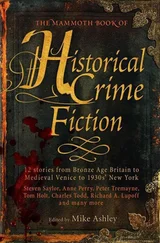The power of music, especially when combined with other emotive events, can be terrifyingly impressive. At the Nuremberg rally of 1936, the thunderous cheers of the vast crowd eventually drowned the music of the massed bands which played Hitler in. But the bands were there long before Hitler appeared, preceding his rhetoric with their rhetoric, preparing the huge gathering for Hitler’s appearance, binding them together, arousing their expectations, aiding and abetting Hitler’s self-dramatization, making it credible that a petit bourgeois failure had turned himself into a Messiah. The Greeks were right in supposing that music can be used for evil ends as well as for good. There can be no doubt that, by heightening crowd emotions and by ensuring that those emotions peak together rather than separately, music can powerfully contribute to the loss of critical judgement, the blind surrender to the feelings of the moment, which is so dangerously characteristic of crowd behaviour.
Rousseau would not have been surprised by Hitler’s oratorical style, which accords with his ideas about the development of speech. It is interesting that at the Nuremberg rally, as on many other occasions, Hitler’s speech was not intended to convey information but took on the quality of an incantation or chant. Hitler’s voice was harsh and unmusical, but he used language in the way it is used in religious ritual. As the historian and German scholar J. P. Stern points out in his perceptive account of this Nuremberg rally, Hitler used a declamatory style superimposed upon near quotations from biblical texts.
How deeply we feel once more in this hour the miracle that has brought us together! Once you heard the voice of a man, and it spoke to your hearts, it awakened you, and you followed that voice. Year in year out you followed it, without even having seen the speaker; you only heard a voice and followed it.
Now that we meet here, we are all filled with the wonder of this gathering. Not every one of you can see me and I do not see each one of you. But I feel you, and you feel me! It is faith in our nation that has made us little people great, that has made us poor people rich, that has made us wavering, fearful, timid people brave and confident; that has made us erring wanderers clear-sighted and has brought us together!
So you have come this day from your little villages, your market towns, your cities, from mines and factories, or leaving the plough, to this city. You come out of the little world of your daily struggle for life, and of your struggle for Germany and for our nation to experience this feeling for once: Now we are together, we are with him and he is with us, and now we are Germany! 37
Considered intellectually, this speech is rubbish. Considered emotionally, its effect was overwhelming. Hitler was using words to reinforce the effect which the music, the banners, the searchlights, and the processions had already induced. He was both arousing his audience and making them experience the same, or closely similar emotions, simultaneously. Over and over again, Hitler stressed the feeling of unity: unity with him, unity with each other. The language which Hitler used is not the conceptual language which is used for abstract thought or exchange of information. It is rhetoric of a hypnotic persuasiveness, exploiting the basic human need to belong; to feel part of a social group; to be united with one’s fellow countrymen. In spite of his harsh voice and his vulgar turns of speech, Hitler’s incantatory style affected crowds in rather the same way as can some music. It looks as if Rousseau was right when, in the passage already quoted from Maurice Cranston’s biography, he affirmed that ‘Earliest languages… were chanted; they were melodic and poetic rather than prosaic and practical.’ 38
Hitler’s adoration of Wagner’s music began early in his life and persisted until his own Götterdämmerung -like finale. If he became depressed his friend and financial backer Hanfstaengl, who was also a pianist, would play some Wagner for him and he would respond ‘as to an energizing drug’. 39It is interesting that Hitler’s favourite composer is the one most generally recognized to be able to overwhelm people emotionally, for this is what Hitler did with his speeches. There must be people still living who heard Hitler speak who look back upon their emotional response to his oratory with horror. I guess that only an exceptionally detached, independent-minded intellectual could have attended events like the Nuremberg rallies without being temporarily swept off his feet.
Today, we are beginning to understand some of the physiological mechanisms by means of which music affects us. But the human brain is immensely complex and our knowledge of how music impinges upon it is incomplete and elementary. We know that how the brain develops is partly determined by the external stimuli to which it is exposed. It would not surprise me to learn that exposure to music with a reasonably complicated structure facilitates the establishment of neural networks which improve cerebral function. This has not yet been demonstrated; but we can affirm with confidence that Plato and Aristotle were right. Music is a powerful instrument of education which can be used for good or ill, and we should ensure that everyone in our society is given the opportunity of participating in a wide range of different kinds of music.
CHAPTER III BASIC PATTERNS
The Musical Scale is not one, not ‘natural’, nor even founded necessarily on the laws of the constitution of musical sound so beautifully worked out by Helmholtz, but very diverse, very artificial, and very capricious.
ALEXANDER J. ELLIS 1
In the first chapter, it was suggested that music is an art deeply rooted in human nature but not closely connected with the external world. As a consequence, different cultures create different musics, just as they create different languages. Although an ethnomusicologist may painstakingly learn to understand and appreciate the music of another culture, it is probably more difficult to do this than thoroughly to master a foreign language. Even within Europe, we cannot be sure that we appreciate music of a few centuries ago in the way that a contemporary listener apprehended it or that the composer intended it.
As our concert programmes demonstrate, the majority of Western listeners appreciate only a narrow range of music, perhaps from the middle of the seventeenth century to the middle of the twentieth century. To promote a concert consisting only of contemporary art music is usually to court financial disaster. Music composed before the seventeenth century has gained considerable popularity in the last fifty years, but remains a specialist taste. Although these limitations may be deplorable, one can hardly blame the ordinary listener for being so unadventurous. So much good music was composed during those three hundred years that there is a virtually inexhaustible treasure trove for the conventionally-minded listener to explore.
J. S. Bach is said to have composed five annual cycles of cantatas for every Sunday and feast day; that is, about 300 in all. Some two-fifths of them have disappeared, but 199 survive. In addition, there are a considerable number of secular cantatas. Although Bach’s popularity has continued to grow since Mendelssohn’s famous performance of the St Matthew Passion in 1829 began his rehabilitation, there can be very few enthusiasts who know all the sacred cantatas intimately. These cantatas alone might be thought a life’s work for any composer; but, as every listener knows, this is only one aspect of Bach’s achievement. There are the works for solo keyboard, keyboard concertos, orchestral suites and concertos, organ music, the Mass in B minor
Читать дальше












